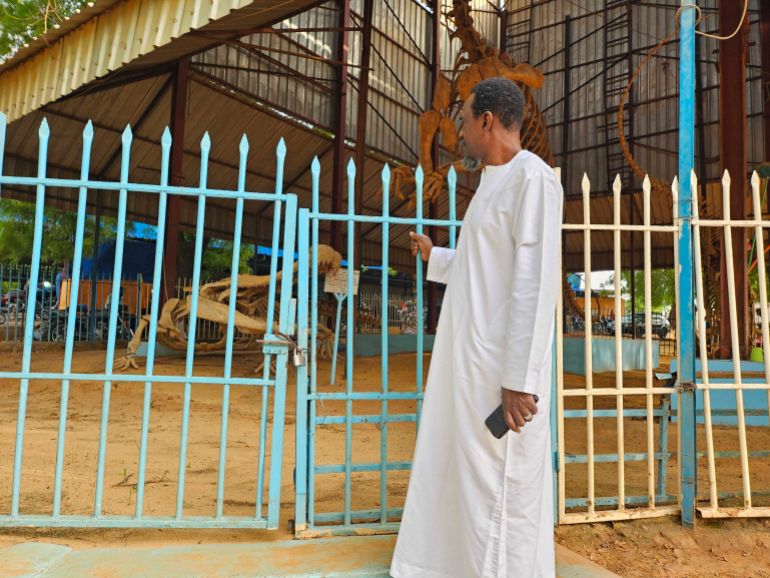We thought returning home would end the nightmare.
After months of fleeing bombardment, sleeping in tents, schools, or under makeshift nylon sheets, many families finally walked back to their homes in northern Gaza during the fragile ceasefire in January 2025. The roads were lined with rubble. Our houses were broken shells, neighbourhoods unrecognisable. Yet we carried a fragile hope: that by stepping back onto our land, even among ruins, we were reclaiming our lives.
But as soon as we returned, the headlines followed us. Terms like “mass relocations”, “humanitarian cities,” and “population transfers” began to appear, suggesting that even after everything we had endured, our next destination might not be what remains of our homes, but military-controlled camps in the far south of Gaza, where the army had swept through and wiped out entire residential neighbourhoods, turning them into barren, flattened deserts.
For many outside Gaza, such reports read as distant political debates. For us, they land like threats. Each new statement feels like a draft of our next exile. The idea that the Israeli military might herd hundreds of thousands of us is terrifying precisely because we know what those “cities” would really be: overcrowded compounds, controlled checkpoints, food and water distribution under armed watch — if we are lucky enough to receive them — no freedom of movement, no guarantee of ever leaving.
Families who have just swept dust from their broken floors now whisper about whether they should keep bags half-packed, ready to flee once again. Children, who have barely adjusted to sleeping in their own beds after months away, overhear the word “relocation” and start crying. We all know what it means: another round of humiliation, another erasure of what little normal life we are trying to piece together.
Meanwhile, life in northern Gaza is already unbearably hard. Water and electricity are scarce. Food is overpriced and often unavailable. Families live among rubble, patching holes with nylon sheets. Yet even in these conditions, people cling to the dignity of being on their own land.
But that fragile dignity is overshadowed by the possibility that it could all vanish. Every attempt to rebuild — a repaired roof, a replanted garden, a reopened shop — feels provisional. Parents ask themselves: Should we invest in repairing the house if we may be forced out again? Students sit with books by candlelight yet wonder: What school will I graduate from if we are moved tomorrow? Every moment of normality feels as though it could be interrupted by soldiers demanding we leave.
What would it mean to live in these camps? The very thought keeps us awake at night.
We picture long queues for food, dependent on ration cards for every meal. We imagine tents lined in rows, stripped of privacy, where families huddle with strangers and women fear for safety in overcrowded conditions. We imagine soldiers controlling the gates, deciding who enters and who leaves, monitoring our lives with cameras and watchtowers.
For children, it would mean growing up without classrooms they know, without streets that carry their memories. Their “playground” would be a fenced dirt lot. For young men and women, it would mean the end of any chance at education or work; for, inside camps, life shrinks to survival. For the elderly, it would mean dying away from what remains of the houses and trees they planted with their own hands.
These are not abstract fears; they match what has already been documented in displacement zones and what legal experts predict. Analysts writing for JURIST and the Council on Foreign Relations note that once inside such camps, Palestinians would be unable to leave freely, their movements tightly monitored, their lives dependent on aid distribution. The United Nations agencies and NGOs have also warned that further mass relocations under military oversight could constitute forcible transfer.
The danger of these proposals is not only the physical hardship but the permanence they suggest. History has taught us that once people are forced into camps, “temporary” becomes long-term. A tent pitched “for now” becomes a marker of exile for decades.
That is why the fear today feels heavier than even the destruction we have endured. Bombs destroy cities, but forced relocation destroys roots. If we are pushed into these camps, it will not just be the loss of homes; it will be the loss of any claim to return.
Satellite imagery already confirms this danger is not theoretical. In Rafah, Al Jazeera’s Sanad agency documented the destruction of nearly 30,000 buildings between April and July 2025, providing evidence of land-clearing consistent with preparations for such a “humanitarian city”.
What makes this looming threat unbearable is the trajectory of our lives. We have already been pushed from hard to harder: from homes to schools, from schools to tents, from tents back to broken houses. And now, the plan being whispered is the hardest yet — military-run shelters that strip us of autonomy altogether.
What we really fear is not paranoia. It is a recurring project to erase us from our land. Some may wonder why the idea of relocation is more terrifying than the bombs we have survived. The reason is simple: bombs destroy walls, steal lives, but they do not sever us from our land. Forced relocation uproots us forever.
To lose a home is devastating. To lose the possibility of return is annihilating. That is why families whisper about the proposals with trembling voices. Because deep down, we know: once we are herded there, we may never see home again.
The world must see through the language being used. The term “humanitarian” is a mask. What is being proposed is not relief but imprisonment. What is being prepared is not shelter but a system of control designed to make displacement permanent.
If you read those headlines, do not imagine children playing safely in neat new towns. Imagine them staring through barbed wire, asking why they cannot go home. Imagine mothers queueing for a ration of flour under the eyes of soldiers. Imagine fathers pacing at night, unable to protect their families from the indignity of being treated as captives.
For us in Gaza, the worst may still be ahead. We returned home believing the nightmare was beginning to end. Instead, we live in the shadow of a new displacement, one that could erase even the ruins we call ours. This is the horror that defines our present: not only surviving bombardment, but living every day with the dread that the next chapter is already written, that the hardest chapter is still to come.








